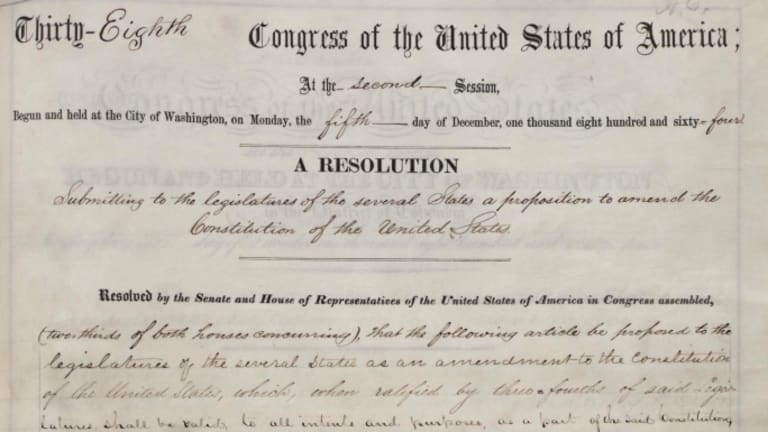On January 13, 1865, the United States Congress passed the 13th Amendment to the Constitution, which formally abolished slavery. It also ends involuntary servitude, except in the form of criminal punishment.
Twenty-seven states ratified the amendment upon its passing, which constituted a majority of the then thirty-six states in the union. Ratification by these twenty-seven states took place on December 6, 1865, and the proclamation occurred just under two weeks later on December 18th. The 13th Amendment was the first of the post-Civil War Reconstruction Amendments to pass.
Prior to the passing of the 13th Amendment, President Abraham Lincoln issued a presidential proclamation known as the Emancipation Proclamation. Lincoln’s proclamation was issued on September 22, 1862, and declared all enslaved persons in Confederate states free effective January 1, 1863.
Despite the intentions of this executive order, however, enslaved Americans were not immediately or uniformly released from the horrors of slavery and involuntary servitude. In fact, many remained enslaved even after the end of the Civil War and the passing of the 13th Amendment. This was largely the case in Confederate states, where they were denied the knowledge of their own freedom.
Additionally, as previously mentioned, the amendment did not universally abolish slavery; it was abolished except in the form of criminal punishment. Mainstream public discourse has largely overlooked this aspect of the amendment. However, its impact on the United States as a whole and Black Americans, in particular, is a topic being more widely assessed, discussed, and addressed.
A great example of this is the documentary “13th,” a groundbreaking documentary film by award-winning director Ava DuVernay.

